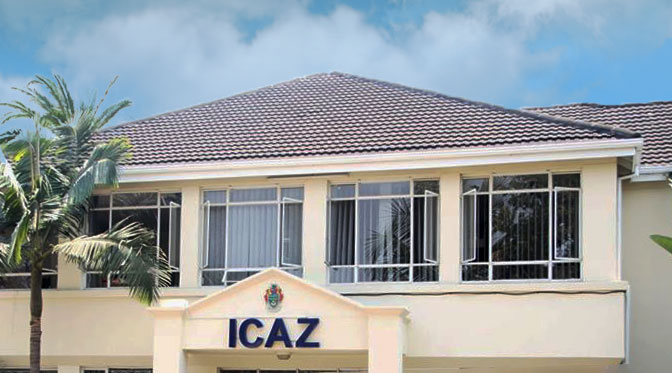ICAZ keeps eye on use of cryptocurrencies
The Institute of Chartered Accountants Zimbabwe (ICAZ) says it will not be caught flat-footed with regards to use of cryptocurrency, which continues to gain traction as a medium of exchange.
Cryptocurrency is digital money, based on blockchain technology. It’s key characteristic, unlike fiat money, is that it does not fall under the regulatory purview of central banks; and functions as a peer-to-peer system.
But despite its disruptive nature, key global players are increasingly adopting it, thus giving its chances of going mainstream. As such, firms could eventually be forced to account for the novel payments system.
But cryptocurrencies currently present numerous challenges for standard accounting practices in businesses.
ICAZ said it is keeping a close eye on developments around reporting issues on cryptocurrencies.
“From an ICAZ perspective we are already up to speed with the accounting and reporting considerations on cryptocurrencies as we get involved in such conversations at international levels,” said ICAZ chief executive officer Gloria Zvaravanhu recently. “Our members in jurisdictions where these are an accepted currency are already having to deal with the accounting and reporting aspects.”
Some of the big global firms that have since moved to accept cryptocurrencies include: Expedia, Microsoft, Starbucks, Amazon, Visa, PayPal and JP Morgan, among others.
The Association of Chartered Certified Accountants (ACCA) has offered some suggestions, particularly with respect to International Accounting Standard 38.
This standard outlines the accounting requirements for intangible assets, which are non-monetary assets which are without physical substance and identifiable.
“Cryptocurrencies are a form of digital money and do not have physical substance. Therefore, the most appropriate classification is as an intangible asset.
“IAS 38 allows intangible assets to be measured at cost or revaluation. Using the cost model, intangible assets are measured at cost on initial recognition and are subsequently measured at cost less accumulated amortisation and impairment losses,” said ACCA in a note.
“Using the revaluation model, intangible assets can be carried at a revalued amount if there is an active market for them; however, this may not be the case for all cryptocurrencies.
“The same measurement model should be used for all assets in a particular asset class. If there are assets for which there is not an active market in a class of assets measured using the revaluation model, then these assets should be measured using the cost model.”
In Zimbabwe, the Reserve Bank of Zimbabwe (RBZ) banned banks from processing cryptocurrency payments in 2018, and has maintained its hard stance on cryptocurrencies by excluding them from its Fintech Regulatory Sandbox, which was announced in the Monetary Policy Statement earlier this year.
However, moving with times, the country’s biggest bank, CBZ recently announced it was looking into the possibility of considering cryptocurrencies. — businessweekly










